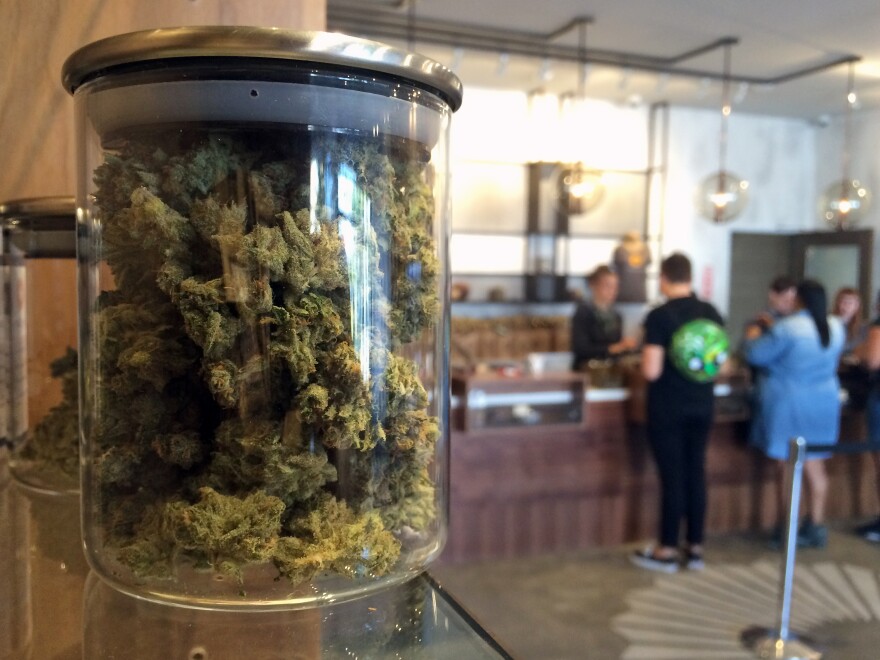Illinois has become the 11 th state in the country to legalize the recreational use and purchase of marijuana.
Democratic Gov. J.B. Pritzker, who was elected last year, signed the bill into law on Tuesday, fulfilling a key campaign promise. The state joins 10 others and the District of Columbia in allowing recreational use. The legislation takes effect on Jan. 1, 2020.
The new law allows Illinois residents who are 21 and older to possess up to 30 grams of cannabis flower, 5 grams of concentrate and 500 milligrams of THC in products such as edibles.
It also will expunge the records of 800,000 people with criminal records as a result of purchasing or possessing 30 grams or less of marijuana. It earmarks a quarter of the tax revenue from the sale of cannabis to redevelop impoverished communities in the state and gives vendor preference to minority owners.
"Legalizing adult-use cannabis brings an important and overdue change to our state, and it's the right thing to do," Pritzker said in a statement. "This legislation will clear the cannabis-related records of nonviolent offenders through an efficient combination of automatic expungement, gubernatorial pardon and individual court action."
Although 10 other states have approved the recreational use of marijuana — Alaska, California, Colorado, Maine, Massachusetts, Michigan, Nevada, Oregon, Vermont and Washington — several others have decriminalized and/or approved cannabis for medical use.
Copyright 2020 NPR. To see more, visit https://www.npr.org.



